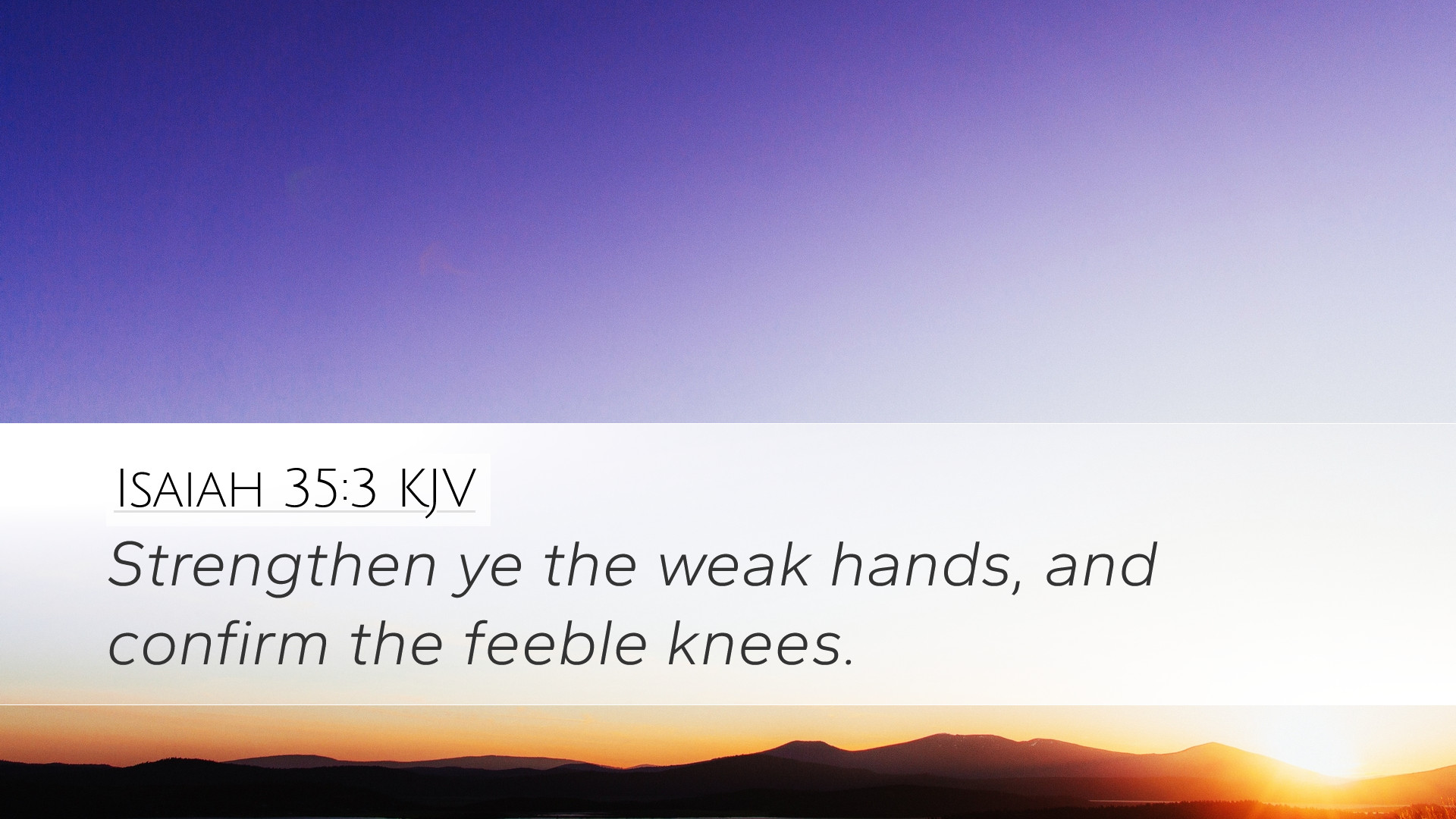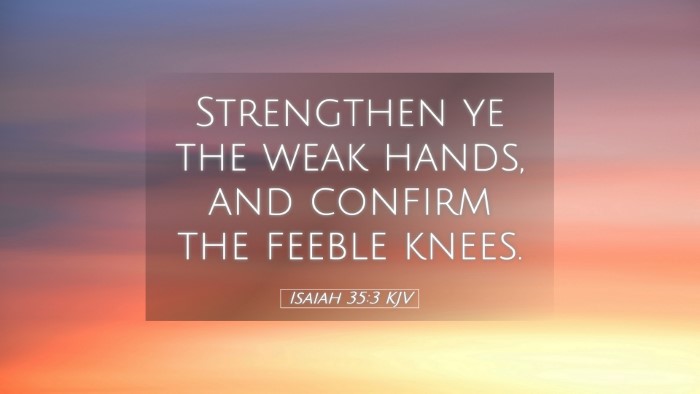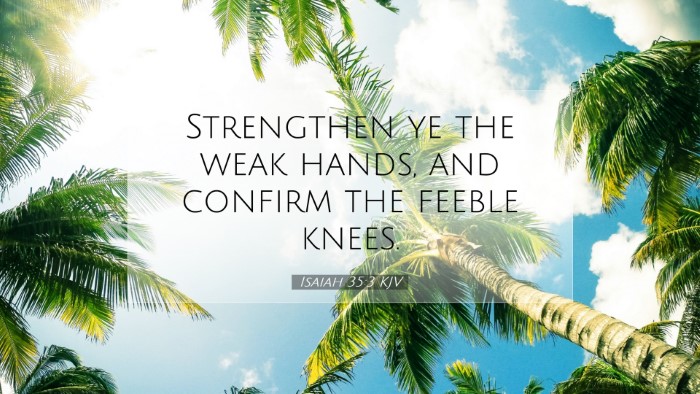Commentary on Isaiah 35:3
Isaiah 35:3 states, "Strengthen ye the weak hands, and confirm the feeble knees." This verse speaks profoundly to the need for encouragement and support within the community of believers and expresses a divine mandate for restoration.
Contextual Overview
The book of Isaiah is rich with prophecies regarding judgment and hope. Chapters 34 and 35 stand in stark contrast: where chapter 34 depicts the desolation of nations opposing God, chapter 35 illuminates the hope of restoration for Israel and the coming joy for the redeemed. The imagery used in these chapters serves to inspire and fortify faith amidst adversity.
Exegesis of Key Terms
-
"Strengthen ye the weak hands": The weak hands symbolize the labor of those who are weary and struggling in their spiritual or physical endeavors. Having weak hands often connotes a lack of strength to perform necessary tasks or maintain faith in difficult times.
-
"Confirm the feeble knees": Feeble knees represent spiritual and emotional instability. To confirm them is to provide not just moral support but also spiritual grounding, helping individuals to stand firm in their faith.
Thematic Implications
This verse is rich with themes applicable to both individual and communal life: strength, encouragement, and the importance of community. As believers, there is a collective responsibility to uplift those who are faltering, reflecting the love and assistance that Christ extends.
Insights from Matthew Henry
Matthew Henry emphasizes that the message of Isaiah is one of hope and consolation. He suggests that this command to strengthen others denotes an active participation in the lives of the weak. Henry comments that believers are called to be instruments of God’s grace, caring for one's neighbor in times of despair. He points out that the imagery of hands and knees suggests work and standing, denoting the reality of living in faith and not just merely resting in it.
Insights from Albert Barnes
Albert Barnes elucidates the notion that the verse acknowledges the struggles faced by many and calls for practical support among the faithful. His commentary suggests that 'strengthening weak hands' may involve both spiritual support through prayer and practical assistance through acts of kindness and charity. Barnes encourages the idea that it is not enough to merely acknowledge weakness; rather, believers are charged with the responsibility to uplift their brethren, thus exemplifying the active love of Christ.
Insights from Adam Clarke
Adam Clarke's exposition highlights the socio-religious context of the time, noting that the audience of Isaiah was in a state of despair due to oppression and uncertainty. Clarke interprets 'weak hands' and 'feeble knees' as indicating not just spiritual weariness, but also physical and emotional distress experienced by the faithful. He stresses the importance of physical presence and encouragement, where faith leads to acts that tangibly contribute to the resurrection of hope among the despondent. Clarke urges churches to focus on building up each other, thereby embodying the spirit of this passage.
Practical Application
The exhortation of Isaiah 35:3 provides a crucial framework for pastoral care and Christian fellowship. Pastors and leaders in the church are reminded of their role to cultivate an environment of support and encouragement. It urges believers to:
-
Promote Community Strength: Create opportunities for members to share their burdens and to foster a culture of mutual encouragement and prayer.
-
Engage in Acts of Service: Go beyond mere verbal encouragement and engage in tangible acts of service to those who are struggling, demonstrating the love of Christ.
-
Ground Teachings in Scripture: Regularly reference scripture and biblical promises that reinforce the hope and strength found in God, helping believers to reframe their circumstances through faith.
Conclusion
Isaiah 35:3 serves as a timeless reminder of the collective responsibility of the body of Christ to support one another. As we reflect on this scripture, let us commit ourselves to being the hands and knees that strengthen the weary, reassuring them of God's steadfast love and the hope of His promises. In doing so, we fulfill the command to uphold one another, fostering a community characterized by grace and mutual care.


